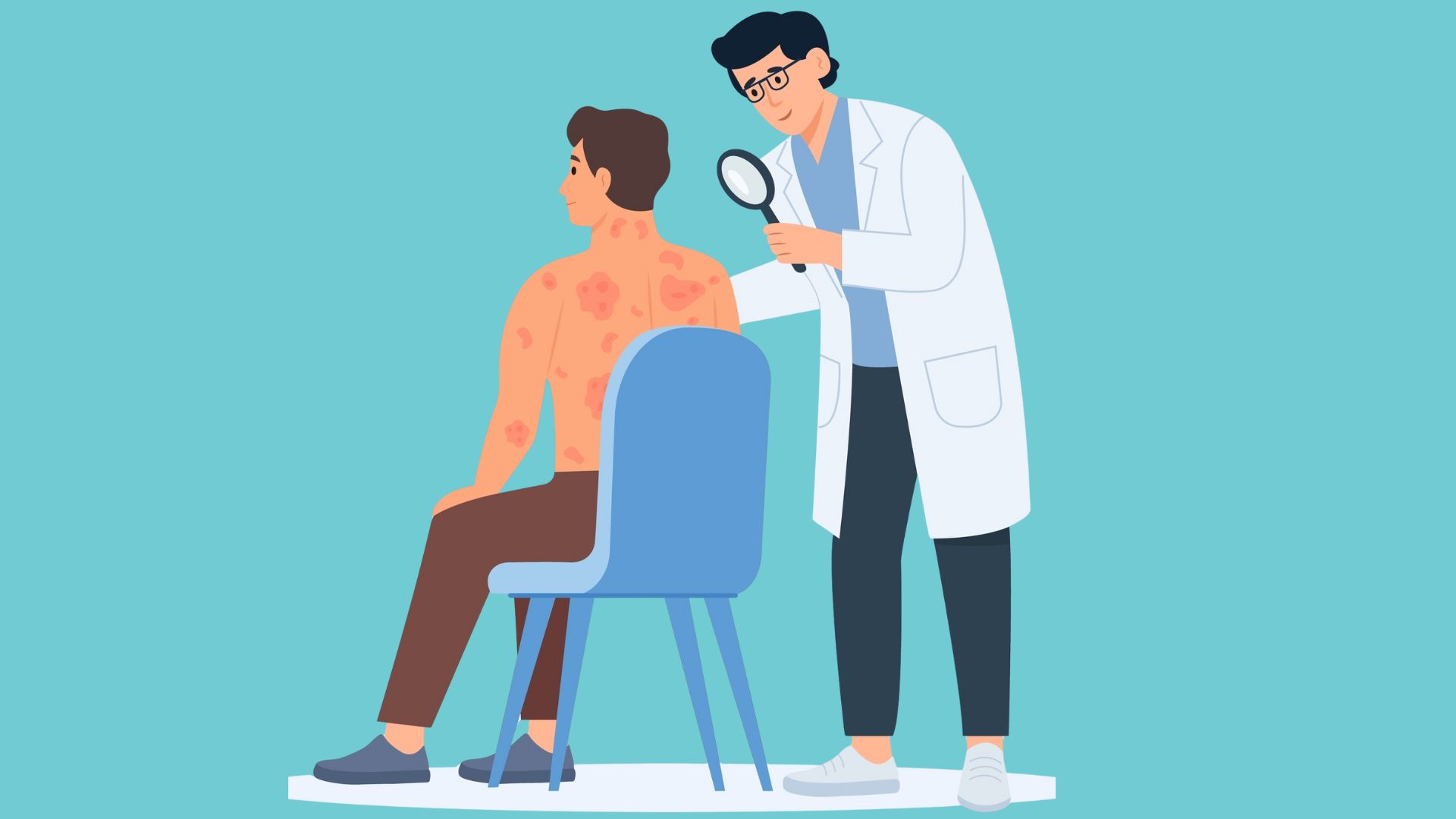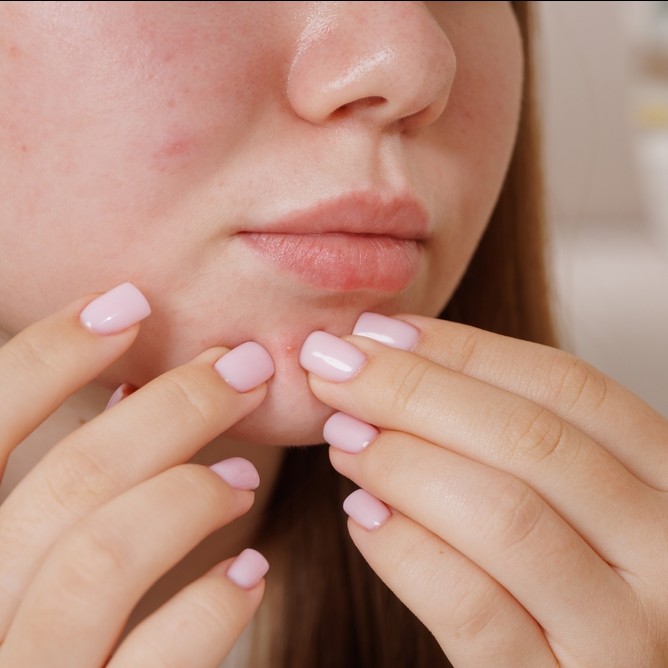We asked experts from The Well, Dr Dara Suite, and Samira Kazemzadeh to share their insights on how you can help your patients manage and identify chronic skin conditions, just as eczema and psoriasis.
Identifying eczema and psoriasis
“Psoriasis typically presents as well-defined plaques with thicker scales, while eczema appears as less distinct patches with finer scaling. Eczema commonly affects flexural areas like elbow folds and behind the knees, whereas psoriasis often occurs on extensor surfaces such as elbows and knees," shares medical director Dr Dara Suite.
Managing flare-ups
Common triggers include stress, certain foods, weather changes, and toxins. It is fundamental to identify and avoid particular triggers so you can help create a personalised management strategy for your clients.
If a flare-up occurs, moisturising frequently using fragrance-free, hypoallergenic formulations can help to keep skin hydrated.
“I recommend applying moisturising products immediately after bathing to lock in moisture. Hot water can aggravate symptoms, so advise to keep bathing time short," advises acupuncturist, Samira Kazemzadeh.
"Patients should avoid scratching, and when it comes to your skincare routine, it’s wise to keep it gentle! Use mild, fragrance-free cleansers and avoid harsh exfoliants or hot water.
"Prescribed medication is the recognised gold standard for treating these skin conditions. With the guidance of your healthcare practitioner, patients may need to apply topical corticosteroids or other prescribed treatments as directed. For psoriasis, topical vitamin D or retinoids may be prescribed.
"An effective approach to handling eczema or psoriasis flare-ups is based on the severity and type of flare-up. It's important to work with a healthcare practitioner to develop a personalised treatment plan,” continues Samira.
Treating skin conditions with active ingredients
Sensitive skin types should be cautious when using high-strength, active skincare ingredients because pilling and combining too many actives at once can irritate and inflame skin, creating tiny breaks in the skin barrier.
Actives such as retinol and vitamin C can work wonders for your skin, but it is important to mindfully select formulas that calm and hydrate the skin, whilst protecting the skin barrier.
"Sensitive skin types should be cautious when using high-strength, active skincare ingredients because pilling and combining too many actives at once can irritate and inflame skin, creating tiny breaks in the skin barrier. Actives such as retinol and vitamin C can work wonders for your skin, but it is important to mindfully select formulas that calm and hydrate the skin, whilst protecting the skin barrier.
"If patients are considering acupuncture, I always advise patients to consult with a dermatologist first and to utilise acupuncture as a complementary treatment alongside conventional medical care, not as a replacement.”
Acupuncture for treating psoriasis and eczema
“Acupuncture can be applied as a complementary treatment for skin conditions like psoriasis and eczema, with the potential to help from several angles: Stress can trigger or exacerbate psoriasis and eczema flare-ups; acupuncture may help to reduce stress while promoting relaxation. Acupuncture can help alleviate the itching or pain caused by these conditions, adds Samira.
"Both psoriasis and eczema involve immune system dysfunction, and acupuncture addresses this by modulating immune responses. Acupuncture can help reduce inflammation associated with these skin conditions and improve circulation to create better blood flow that supports skin healing. It can also help regulate hormones that can influence skin health."
Tweakments advice
“While aesthetic treatments for eczema and psoriasis should always be secondary to medical management, some options may help improve skin appearance and reduce symptoms," explains Dr Dara Suite.
Dr Dara Suite reccommends "gentle chemical peels which can exfoliate and improve skin texture." Exfoliating is difficult, however can help reduce the appearance of psoriasis patches. Gentle chemical exfoliants can be used to treat psoriasis, however there is a risk of irritation.
"Microdermabrasion may be applied to help with scale removal and skin smoothing," continues Dr Dara Suite, however it is typically not recommended for treating psoriasis because it can irritate the skin and potentially trigger the Koebner reaction.
"LED light therapy can help reduce inflammation and promote healing," explains Dr Dara Suite, regular sessions of phototherapy, which uses specific wavelengths of ultraviolet light, slows skin cell production and reduce inflammation.
Patients can use red and blue light devices at home to further treat skin cell overproduction, inflammation, and healing.
"PRP also aids skin healing," the process of injecting a concentration of a patient's platelets, which contain growth factors, helps reduce inflammation and improve redness and flaking.
"Microneedling can improve skin texture and reduce scarring," however whilst microneedling can be beneficial for patients with psoriasis, it is important that the procedure is not done over any psoriatic patches of skin - to avoid the risk of the Koebner phenomenon.
"Not all treatments are suitable for every individual or every case of eczema or psoriasis, so it is crucial they are performed by a qualified professional who understands these skin conditions. Always consult with a dermatologist before pursuing any aesthetic treatments,” recommends Dr Dara Suite.
You might also like to read... Supporting psoriasis patients in aesthetic practice




